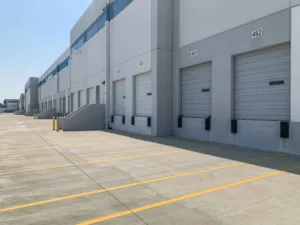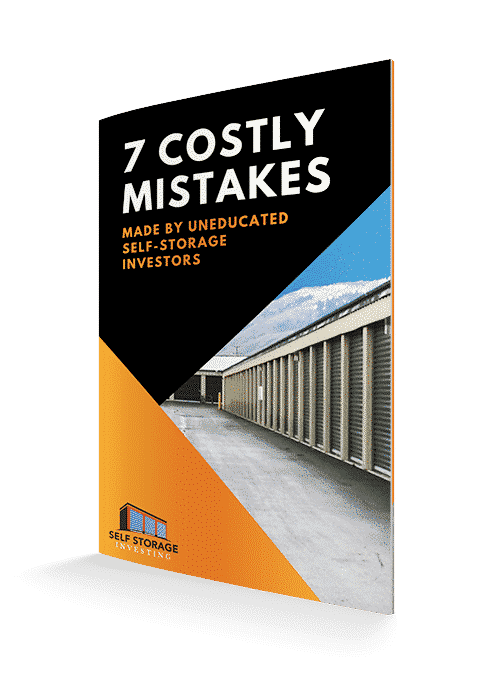If you don’t know what to do with 200k dollars, make sure to scroll until the end of this article. We’ll show you how to invest in real estate and secure your retirement. Our small guide will cover all the differences between strategies to help you find the best suited for you. Capital of 200k is more than enough to start investing, so let’s get right to it.
Investing in Real Estate – Passive and Active Methods
Real estate properties can be sources of both passive and active income, depending on your approach. Simply put, you’re an active investor if you’re “trading time for money” by doing property management, renovating properties, finding tenants, collecting rents, etc. On the other hand, a passive method provides returns without any (or at least minimal) involvement on your side.
Active Investment: Pros and Cons
The main argument in favor of active real estate investing is being in charge. You’ll have much more control over the investments if you’re actively involved in property ownership, management, and decision-making.
If you’re an active investor, you’ll also receive more tax benefits. Since you’ll directly own rental properties or storage units, you can deduct mortgage interests, insurance costs, and maintenance costs from your tax returns.
Lack of time and experience is considered the main con of active investments. You need to be well informed about the real estate market and have knowledge about property management in order to be successful. On top of this, you’ll be actively engaged and much more committed to the investment, which tends to be time-consuming and often exhausting.
Passive Investment: Pros and Cons
When you’re passively investing, you’ll have much more time on your hands. All the work is done by sponsors, partners, and managers. After you put money in the deal, you leave the experts to do their best and provide you with monthly or annual returns.
Naturally, this means you won’t be completely in charge. Lack of control over investment decisions and modes of operation can be off-putting for some people. Through this method, there’s also a lack of liquidity since you can’t sell the property whenever you want. Sometimes you can pull your money out under special circumstances, but those conditions must be set before closing the deal.
Both methods have advantages and drawbacks. What you’ll choose depends on your wishes and needs. When you define those and set clear goals, you’ll be able to choose the perfect investment strategy with ease.
Why Invest in Real Estate Instead of the Stock Market?
While it’s your personal choice to invest 200k in anything you want, we highly encourage you to consider investing in real estate. This is less risky, provides better returns, and allows greater portfolio diversification than other investment types.
Buying stocks means acquiring a tiny piece of a particular company. Hence, your rate of return depends on its performance. You earn money either through dividends or value appreciation when the company’s stock increases and lose money if the company crashes. Some people consider this a gamble, but a trader with proper market knowledge can invest quite safely in the stocks with portfolio diversification.
When you buy real estate, your earnings depend on rental income and property appreciation. As we previously discussed, you can invest in real estate passively. In this case, you’ll be a partial owner, and your cash flow will be a portion of the profit generated by rental properties. Naturally, if the property is sold, all “silent” partners receive a portion of the sale.
Stocks are subjected to market shifts, and they’re very volatile. If you don’t know exactly what you’re doing, you could lose money on the stock market in an instant. Real estate investing also depends on the market, but properties are not as volatile as stocks. Depending on the local market demand, single-family homes can be as much lucrative as commercial real estate and vice versa.
As you can see, there are different risks and opportunities on both sides. Although real estate might not be as liquid as stocks and requires larger capital to start (but you already have 200k!), we’d argue that it’s much safer.
You’ll naturally choose the investment style depending on your financial knowledge, current situation, and risk tolerance. Note that your investment portfolio can be very diverse – you don’t have to go all-in on one option. Invest a bit in stocks (preferably a safer fund) and put the rest in real estate. This will allow you to have the best of both worlds.
What Can You Do With 200k Inheritance?
You likely want to put the money to good use and secure your retirement, so your next step is investing. Note that you should talk to a financial adviser before making any serious moves and approach deals with caution.
If you don’t invest the money, your 200k won’t be worth as much in twenty years. Inflation will increase the value, but prices will be higher, too. With monthly withdrawals of $2000, you’ll spend it all in less than ten years!

On the other hand, if you invest 200k, your savings will grow a lot! You can increase it to $641,427 with the simplest investment methods and a 6% interest rate. Imagine what you can do with proper planning! Scroll through the list below to find the best way to invest $200,000. We’re fans of real estate investing, but we’ve also included other options if you want to diversify more.
Self-Storage Investing
We’ll start the list with a recession-resistant type of investment. Self-storage facilities are known to generate high incomes even during economic turns. How so? Well, simply because people downsize in a recession. Many people move to smaller houses, and they need additional storage space for their valuable possessions, such as vehicles, furniture, sports equipment, and collectibles. Likewise, businesses are shutting down, so there’s a demand for storing office equipment.
While self-storage has been around for decades, only recently have people learned to appreciate its use. Nowadays, the industry has grown so much that it covers over 1.9 billion square feet in more than 50,000 facilities nationwide. More and more investors want to diversify their assets and move away from residential units, so they choose self-storage as a highly competitive investment option.
From a construction point of view, self-storage is an appealing asset class because of much lower costs when compared to commercial real estate projects. And for more passive investors, self-storage is a lucrative source of consistent cash flow, non-dependant on the recession.
You can own and lease self-storage units alone or with partners. Whether you choose to be an active or passive investor, self-storage offers lots of options.
On your own, you can buy or build a facility yourself and manage it. Alternatively, if you find reliable partners that handle management tasks, from finding lucrative deals to maintaining properties, then all you need to do is provide investment capital and collect the monthly income.
And with technological advances, you don’t have to be involved with management at all. Almost everything can be automated, from leasing to monitoring units.
Rental Properties
Real estate properties such as single-family homes or vacation rentals can also provide you with a hefty annual return, often more than 10%. Not only will you have a consistent cash flow, but you’ll earn money through appreciation. Your property’s value will increase over time, and you can sell it later for a higher price.
If you don’t see yourself as a landlord, you can hire a property manager who will deal with tenants. With a reliable manager, you won’t have to worry about vacancy rates or maintenance tasks, but you’ll receive less money from the property.
House Flipping
If you currently don’t have a demanding job, a fix-and-flip strategy can bring you lots of money. Investors want to acquire distressed properties at a lower price and increase their value with renovation. The profits come from selling the house way above the initial price.
This strategy isn’t without risks because you need to secure the property for a low price, carefully calculate the repair costs, and later sell it for the right price. If you’re new to the real estate world, it’s best to ask for advice from experienced investors.
REITs – Real Estate Investment Trusts
A REIT is like a combination between stocks and real estate. You can buy shares in an REIT, which will use your money to make investments. You’ll be able to generate steady cash flow without any hassle. REITs can yield high dividend returns (up to 15%), but they aren’t without risks. When the housing market crashed in 2008, many people experienced short-term losses.
Individual Stocks
As said, stocks can yield high profits, but they are very risky. You can invest in stocks if you’re confident enough and have higher risk tolerance. However, before you do anything, we highly encourage you to seek financial advice from a professional and conduct due diligence. Also, try not to invest 200k fully in stocks to avoid losing a lot of money due to market shifts.

Cryptocurrency
Many investors are opting for investing in cryptos. If you’re familiar with crypto technology, it might be a good idea to put a portion of your money in Bitcoin, Ethereum, Litecoin, Cardano, and other currencies. These are also risky investments since they aren’t tied to a government or any financial institution, so you need to spend a lot of time researching the market.
Max Contributions to Your Retirement Account
Whatever investment path you choose, make sure to set aside money for your 401(k) and IRA. The limit for a 401(k) is $19,500 (with a catch-up contribution of $6,500), and for an IRA it’s $6,000 (plus $1,000 catch-up). Note that the average return you can expect from these accounts is 5-8% based on market conditions.
High-Yield Savings Accounts
If you want to avoid risks completely, you can always put your money in a high-yield savings account that offers 0.5% APY (unlike regular savings accounts with 0.05% APY). While this won’t make you rich, your inheritance will be safe, and you’ll earn money with the power of compound interest. In twenty years, you’ll have almost $100,000 extra dollars in your account.
Final Thoughts
While you shouldn’t expect miracles, smart investing can make you a millionaire. Real estate, especially, is often used as a reliable wealth-building strategy. That’s why we love it so much!
Whatever you do, remember to be patient and follow the investment process step by step. Set directions for yourself and follow them. You’ll slowly see your investments growing. If you always keep long-term goals on your mind, you won’t be discouraged from minor setbacks.
It’s also a good idea to surround yourself with other investors that can offer advice. Your portfolio will surely benefit from their experiences.
Lastly, you want to pick an investment strategy (with wisdom from an adviser!) and stick with it. As said, we suggest investing in real estate, but you can try any other method. Just conduct detailed research and get your information from reliable sources.
If you’re interested in finding out more about the self-storage industry, don’t hesitate to reach out and get our help on the matter. We’ve gathered a community of self-storage investors eager to share their ample knowledge and help others succeed, too.






